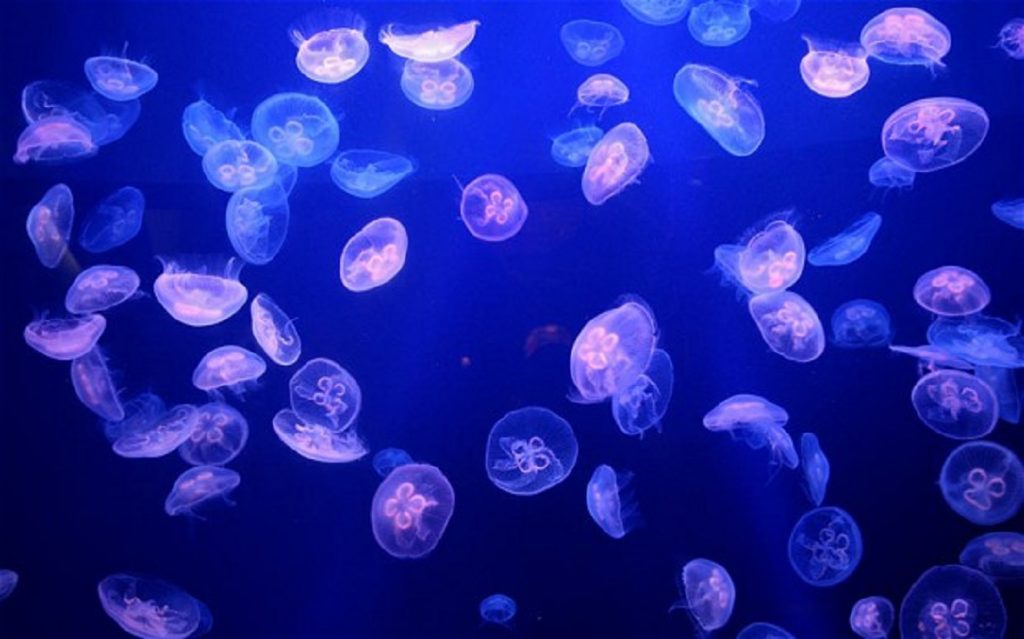The Gulf of Mexico is home to certain species of Jellyfish. However, the dangerous species such as the Man-Of-War are very rare in the gulf area. While most jellyfish stings are harmless, they can still be painful. With the proper attire, you can swim safely without any fear of getting stung.
However, in the event you do come in contact with a jellyfish and are stung, we recommend you help diminish the pain by treating the affected area with ammonia poured over the skin or simply apply meat tenderizer or toothpaste.
The best way to avoid stings is, of course, to avoid jellyfish areas. If you are unsure, check local and online weather reports. You can also check the local beach\’s website to see if they have any warnings concerning jellyfish.
If you are headed to jellyfish areas, and you want to go deep into the sea for a swim, wear a wetsuit and rubber water socks (verruca socks) or if you\’re just going for a paddle you only need crocs or flip flops and 3 quarter lengths instead of shorts.
Stay away from any jelly fish. It may sound unnecessary to mention, but you’d be surprised how many curious people are out there. Even if it is on ground, it\’s stingers can remain active for three days! It is best to notify authorities if you spot one on a ground to remove it.
If there is no escape, stay very calm. Jellyfish don\’t normally attack unless provoked or killing its meal. If possible, get your back against a rock or something so another one doesn\’t surprise you from behind.
If you get stung, treat immediately. Rinse the tentacles off with salt water. Fresh water will only make the stinging pain worse. Remove any remaining tentacles with tweezers or by hand. Make sure you wear gloves!
Watch for (severe) allergic reactions. Use vinegar to neutralize the toxin. Seek medical treatment if necessary. Restrict movement of the affected area to prevent the venom from being transported through the body by the blood circulation.
Most importantly, calm down. Excitement makes the heart pump faster, and the venom will rapidly spread through the body. Ibuprofen and acetaminophen will help relieve pain.
Please note: If you find a jellyfish washed up on shore, do NOT try to pick it up. Even if it looks (or is) dead, it is still capable of stinging you.
An ounce of prevention is worth a pound of cure. If your area has jellyfish, reconsider swimming elsewhere.
It\’s a good idea to take a first-aid kit with you when you travel. Vinegar can be kept in a small bottle while camomile lotion or meat tenderizer are inexpensive.
And despite popular belief, urine will not work on a jellyfish sting. Some victims have reported pain relief, but urine does not always have enough acid to neutralize the venom. Use vinegar instead.




